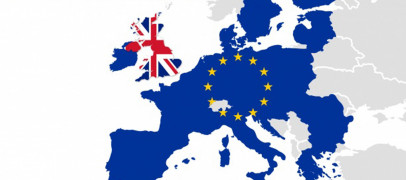

Young Brits Failing to Get Cover for Adventurous Pursuits Abroad
27 Jun 2013 by Olga Brighton
FCO issues warning about inadequate insurance cover for holiday activities.
Medical treatment can cost thousands abroad yet new research by the Foreign and Commonwealth Office (FCO) has found that fewer than half (45%) of young Brits surveyed check that their insurance covers risky pursuits, despite 4 out of 5 (82%) admitting to taking part in more adventurous behaviour when on holiday.
The findings come as the FCO and The Travel Association ABTA urge holidaymakers to be better prepared for their travels. Medical costs arising from uninsured accidents abroad can be severe, with the Post Office indicating that the average claim for a personal accident is £7,500.
Despite this, young Brits still head for the more adventurous pursuits abroad. A fifth (19%) of 16-24 year olds have driven a moped or quad bike while on holiday, 30% have been jet skiing or taken part in watersports and one in 8 (13%) have been skydiving or bungee jumping.
Foreign and Commonwealth Office Minister Mark Simmonds said:
“With summer just around the corner, many young people will be planning trips abroad with their friends. We want people to enjoy their holidays so we encourage them to be prepared. An emergency abroad can be extremely expensive. Medical treatment or returning to the UK could cost you thousands of pounds, unless you are adequately insured. We will do what we can to support people who require medical assistance but the FCO cannot pay their medical bills or fly them home. This is why we urge people to take out a comprehensive insurance policy which covers them for everything that they want to do while on holiday.”
Every year, FCO staff support thousands of British nationals facing serious problems abroad, including 16-24 year olds who have invalidated their policy or taken out the wrong cover.
When asked why they were more likely to pursue adventurous activities when on holiday, two thirds (66%) of 16-24 year olds said the weather made them more inclined to try new things, while 41% said that they felt more confident. One fifth (21%) said that they felt less inhibited while on holiday.
Psychologist Dr Rachel Andrew commented:
“Young people are more likely to exhibit impulsive risk-taking behaviour than in later life. They can often get into risky group situations where they are reluctant to say no. They test boundaries, try out new things and don't plan or think of the consequences as much as they would when they are older. Couple this with the fact that they often see holidays as a liberation from the limitations of study, work, peers and family life and you can see why weighing up the risks of more adventurous pursuits comes lower on their list of priorities”.
The latest annual figures from ABTA suggest that almost half (48%) of young Brits aged 15-24 holiday abroad without taking out any insurance at all.
Mark Tanzer, ABTA Chief Executive added:
“It’s concerning to see so many young people travelling overseas uninsured, particularly when they are more likely to take part in adventurous behaviour. Many people travel uninsured because they are unaware that medical bills can run into thousands of pounds or wrongly assume that the Government will pay for their treatment. Unfortunately without proper insurance in place young people are putting themselves at the risk of not getting the right treatment should they have an accident or paying off sky high medical bills for years to come.”
Being uninsured for activities abroad is not confined to the young. Half (50%) of all British travellers don’t check that they are covered before an adventurous holiday experience despite the fact that almost two thirds admit to engaging in more adventurous pursuits while abroad.
The FCO can:
- Provide information about transferring money
- Give you a list of local doctors, lawyers, interpreters or funeral directors
- Contact friends and family back home for you if you wish
- Issue you with replacement travel documents
The FCO cannot:
- Get you better treatment in hospital than is given to local people
- Pay any bills or give you money
- Make travel arrangements for you
Further details of how the Foreign Office can provide support to British nationals when things go wrong abroad are outlined in the publication Support for British Nationals Abroad.
The FCO’s Know Before You Go campaign encourages British nationals to prepare for their foreign travel so they can avoid preventable problems. The campaign targets a number of audiences, from gap year students to package holidaymakers; sports fans to older travellers and people visiting friends and family abroad. The campaign works with around 550 travel industry partners to communicate its messages.
We accept

